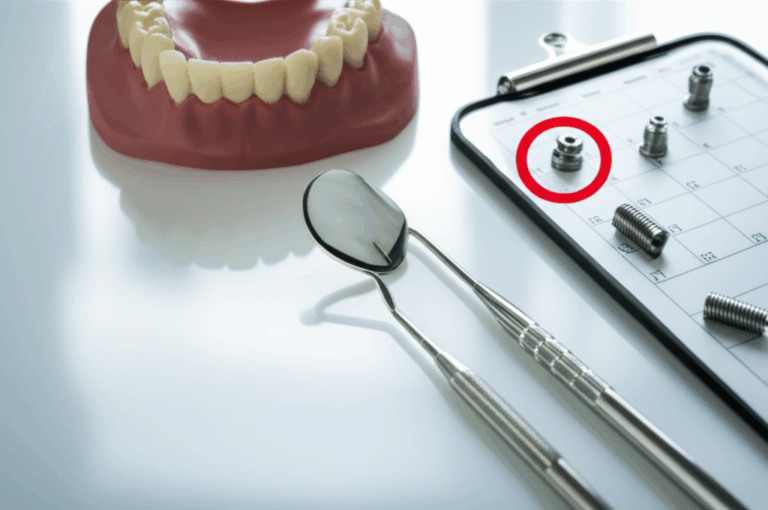
Does Amerigroup Cover Dental Implants? Understanding Your Dental Benefits
Have you ever wondered if Amerigroup will pay for dental implants? If you’ve lost a tooth and heard implants are the best choice, but aren’t sure if your Amerigroup plan can help, you’re in the right place. In this article, I’ll give you the clear answer right away—then I’ll walk you through the reasons why, your other choices, and where to look for extra help. This is a must-read if you want to save money, protect your health, and make smart decisions about missing teeth.
Table of Contents
What’s the Quick Answer: Does Amerigroup Cover Dental Implants?
Let’s not keep you waiting. Most Amerigroup health plans through Medicaid or CHIP do NOT pay for dental implants. Yep—it’s very likely your plan doesn’t help with implants, especially if you’re an adult.
Why not? Mainly for two big reasons: price and what’s called “medical need.” We’ll talk about both below, but here’s the short version: Dental implants cost a lot, and most Medicaid dental plans, including Amerigroup, are meant to pay for basic tooth care, not expensive tooth replacements.
If you were hoping for more, this might feel like a let down. You might also wonder what you should do next. Don’t worry—this article will help you find out what counts as covered, what low-cost choices you could try, and how to check your own benefits for sure.
Who Is Amerigroup and How Do Their Dental Plans Work?
Let’s back up. Amerigroup is a company that runs health and dental plans for people on Medicaid and CHIP (Children’s Health Insurance Program) in certain states. They’re called a Managed Care Organization, or MCO.
Medicaid and CHIP are government programs. Amerigroup doesn’t make the rules about what’s paid for—they follow your state’s rules. This means your dental coverage from Amerigroup depends on where you live and what your state’s Medicaid gives you. Some states cover more than others.
Here’s what most Amerigroup plans cover for adults:
- Preventive care: Exams, cleanings, X-rays
- Basic care: Fillings, pulling teeth, maybe some root canals
- Some fixing work: In some states, things like dentures or bridges might be included
But dental implants? Almost always left out.
Why Are Dental Implants Usually Not Covered by Amerigroup?
This is the big question. Why will insurance cover some dental work, but draw the line at implants?
Here’s what I’ve found out:
Dental implants are really expensive. They can cost $3,000 to over $6,000 for each tooth. Medicaid (and Amerigroup, who runs their plans) has to use their budget to help as many people as they can with the basics. Implants, even though they’re great, are seen as more of a “nice to have” instead of something you must have to be healthy.
Implants are often called “cosmetic.” Most Medicaid plans pay for care that fixes pain, fights infection, or saves a tooth—not care that’s just to make you look better. The rules usually say anything “cosmetic”—like teeth whitening, or replacing missing teeth with the fanciest option—isn’t paid for.
Rules change from state to state, but the answer is usually no. Even in states with better Medicaid dental benefits, most times they cover things like dentures, not implants.
What Counts as Medically Necessary?
You might think, “Not having teeth is a real problem. Shouldn’t this count as needed?” It depends. With Amerigroup (and most Medicaid plans), “medically necessary” has a very strict meaning.
According to Medicaid and Amerigroup:
- The service has to help treat, stop, or prevent a disease, injury, or condition that’s hurting your health.
- If not getting the treatment would cause real, long-term health problems, they might pay for it.
- But: Dental implants almost never fit these rules. The only real exceptions are rare, like if you lost part of your jaw in an accident or need a big surgery after trauma.
So, even if implants make eating and talking easier, and feel almost like your own teeth, insurance most times sees them as “extra” compared to treating pain or infection.
What Does Amerigroup Dental Typically Pay For?
If implants aren’t paid for, what can you expect from Amerigroup dental? Here’s a simple list:
- Preventive care: Dental checkups, teeth cleanings, X-rays
- Basic dental work: Fillings for cavities, simple tooth pulling, some root canals
- Sometimes: Simple dentures (fake teeth that you can take out) are paid for adults. In a few states, dental bridges might get some coverage.
- Tooth pulling and small surgeries: Usually just basic extractions and easy fixes
- Kids (CHIP): Amerigroup covers more for kids’ teeth work since their teeth are still growing and very important
No fancy stuff. Cosmetic dental work, whitening, or treatments just to look better are usually not paid for. The focus is on staying healthy, not a “perfect” smile.
Look in your own Amerigroup book—each state is different.
How Much Do Dental Implants Cost if I Don’t Have Coverage?
Let’s be honest. Dental implants are expensive! Even one tooth can wipe out a lot of savings. Look at this simple table:
| Procedure | Average Cost (Per Tooth) |
|---|---|
| Dental Implant | $1,500 – $2,500 |
| Abutment | $300 – $500 |
| Crown (Tooth Cap) | $1,000 – $2,000 |
| Bone Graft (If Needed) | $200 – $3,000 |
| Total (Each Tooth) | $3,000 – $6,000+ |
Source: American Dental Association, Fair Health Consumer.
Why is it so much? It isn’t just the implant. You pay for the dentist’s work, the metal post, lab work, the connector on the top, and then a crown that looks like a real tooth. If you need extra fixes, like a bone graft, the cost jumps even more.
For most people on Amerigroup, who depend on help paying for health bills, this just isn’t something they can pay for on their own.
Are There Any Cheaper or Covered Options Besides Implants?
Here’s something better. Even if you can’t get an implant, there are other ways to fix missing teeth. They might not be as fancy, but they help you eat, talk, and feel better about your smile.
1. Dentures (Fake Teeth)
- What are they? Fake teeth you can take out, resting on top of your gums.
- Good points: Cheapest way to replace a lot of teeth. No surgery.
- Bad points: Might move while eating. Some people say they don’t feel real and make it harder to taste food.
- Coverage: Lots of Amerigroup and Medicaid plans pay for dentures, especially if you’re an adult. Ask your dentist if you can get them.
2. Dental Bridges
- What are they? A bridge spans the gap, using crowns on teeth next to the missing space, with a fake tooth in between.
- Good points: Stays put—not taken out. Looks more like real teeth.
- Bad points: You sometimes have to grind down healthy teeth to hold the bridge. May not last as long as an implant.
- Coverage: In some states, Amerigroup pays for part or all of a bridge, depending on local Medicaid benefits.
If you want to read more about dentures, check out this removable denture lab guide.
Where Can I Find Affordable Dental Implant Help?
If you’ve decided you really want a dental implant, you’ll need to find ways to lower the price. Here are some options:
1. Dental Schools
Dental students (with teachers watching) often do implants for about half the price of a regular dentist. It might take longer, but the care is good.
2. Community Dental Clinics & Health Centers
Many cities have clinics for low-income people. You pay what you can afford.
3. Payment Plans or Dental Loans
Some dental offices let you pay a little every month. Some connect you with companies who lend money for dental care. But read the fine print—interest can make it cost more.
4. Charities and Nonprofits
Groups like Dental Lifeline Network or some churches may give grants or free care if you qualify.
5. Discount Dental Plans
Not insurance, but you pay a yearly fee to get lower prices at certain dentists. Savings vary, but it’s better than nothing.
6. Clinical Trials
Look for dental schools or hospitals testing new implant methods—you could get free or cheap care as a volunteer.
Want more about how these options work? Check out this helpful implant dental laboratory resource.
How Do I Check My Amerigroup Dental Coverage for Sure?
Don’t just guess—check your own plan before you spend money on dental work.
Easy ways to check:
- Call Amerigroup Member Services: The phone number on your card.
- Use your online member account: Log in to see details, what’s paid for, and any limits.
- Ask your dentist’s office: They know how to check what’s covered. They can even send a request to see if something is paid for (called pre-authorization).
- Look in your benefits booklet: You get this when joining—it lists what’s covered and what’s not.
If your dentist says “no,” but you feel you have a good case, ask about appeals. Sometimes, if you have a rare health reason, they’ll look again—but it’s very rare for implants.
Conclusion: What Should You Do Next?
Losing a tooth can be hard. Not being able to eat, talk, or smile the way you want is tough. If, like most Amerigroup members, you just learned implants aren’t paid for, it’s frustrating—I get it.
But here’s the thing: You do have choices. Dentures and bridges can help a lot of people. Affordable dental care is out there if you look—like dental schools, clinics, payment plans, and group discounts. Find a dentist who knows Medicaid rules and always ask questions.
One thing’s for sure: You deserve to replace missing teeth and stay healthy, even when money is tight. Use the tools and choices around you. Start with what’s paid for, look for low-cost help, and work up from there.
Want to know what causes missing teeth or how implants work? Check out this page on dental implant solutions.
Key Takeaways: What to Remember About Amerigroup and Dental Implants
- Amerigroup plans through Medicaid or CHIP almost never pay for dental implants.
- Implants cost a lot ($3,000 or more per tooth) and are seen as “extra,” not needed.
- Amerigroup dental helps pay for checkups, fillings, extractions, dentures, and sometimes bridges.
- If you want an implant, look at dental schools, clinics, payment plans, and charities to help.
- Always check your own coverage with Amerigroup or your dentist before starting any big dental work.
- Don’t give up! There are ways to replace teeth and get healthier, even on a budget.
References
- American Dental Association: “Dental Implant Cost & Information”
- Center for Health Care Strategies: “Medicaid Adult Dental Benefits Coverage”
- Kaiser Family Foundation: “Medicaid Benefits: Dental Services”
- Dental Lifeline Network: https://dentallifeline.org
- Fair Health Consumer: https://www.fairhealthconsumer.org
- Amerigroup: Member Services and Plan Booklets
If you want to know more about today’s advanced tooth materials, check out dental ceramics lab or crown and bridge lab for more about how tech is making tooth fixes look and work better than ever.
Ready for your next move? See your dentist, call Amerigroup, and keep going until you get the healthy smile you want!







